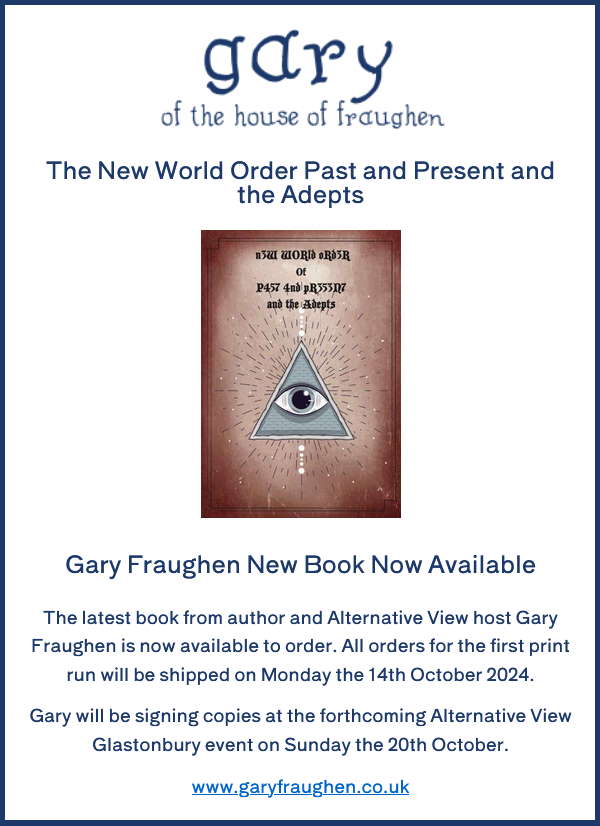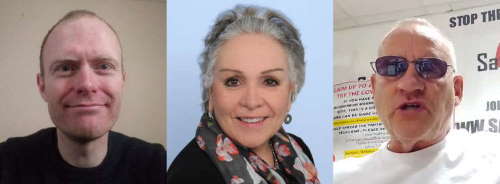Increasingly the lens is being narrowed onto territorial concessions as Ukraine’s end game. Behind the scenes, all Ukraine’s Western allies now understand that it’s impossible to compete with Russia and the only way they can salvage some of their blood-investment is by freezing the conflict under the false promise that Ukraine can regain its lost territories at some future date, after a few years of rebuilding.
A new FT article puts the spotlight on this angle.
Key summary:
 Kiev is holding closed talks on a peace deal that would see Russia retain control over Ukrainian territories it controls but not recognise its sovereignty over them, – Financial Times
Kiev is holding closed talks on a peace deal that would see Russia retain control over Ukrainian territories it controls but not recognise its sovereignty over them, – Financial Times
 “Behind closed doors, there is talk of a deal in which Russia controls about 1/5 of Ukraine, although Russian sovereignty is not recognized – while the rest of the country is allowed to join NATO or receive equivalent security guarantees.”
“Behind closed doors, there is talk of a deal in which Russia controls about 1/5 of Ukraine, although Russian sovereignty is not recognized – while the rest of the country is allowed to join NATO or receive equivalent security guarantees.”
 The publication describes a scenario similar to how West Germany restructured and integrated with the EU during the Cold War.
The publication describes a scenario similar to how West Germany restructured and integrated with the EU during the Cold War.
RVvoenkor
The article opens by acknowledging that behind the scenes the mood is “darker than ever” and that Ukraine faces a devastating winter of power shortages. What’s extremely interesting, to digress briefly, is how they acknowledge that a settlement of the conflict which is ‘adverse’ to Ukraine in favor of Russia would pose grave security risks to Europe and the US.
So, are they admitting that a non-neutral Ukraine is a key linchpin buffer state that poses massive risks to one side or the other, depending on its alignment? If that’s the case, why the hysterical denial of Russia’s justified concerns about Ukraine’s shifting alignment to the West after the CIA-sponsored coup in 2014? Surely they can see Russia is likewise due the same allowance of concern they now profess for themselves.
They go on to land their key thesis:
Some Kyiv officials, too, fret in private that they lack the personnel, firepower and western support to recover all territory seized by Russia. There is talk behind closed doors of a deal in which Moscow retains de facto control over the roughly one-fifth of Ukraine it has occupied — though Russia’s sovereignty is not recognised — while the rest of the country is allowed to join Nato or given equivalent security guarantees. Under that umbrella, it could rebuild and integrate with the EU, akin to West Germany in the cold war.
But they explain that even the optimistic deal above relies entirely on two improbable scenarios:
- That the US and allies would even allow the remaining rump-state Ukraine to enter NATO. This is problematic because it would require the mass-deployment of US trips upfront as a Cold War-style ‘tripwire’ in accordance with Article 5.
- That Putin would agree to such a ceasefire deal to begin with, particularly given the fact that one of the primary stated reasons for the SMO being launched was the prevention of Ukraine joining NATO. We will address this point specifically later.
They do also mention that Putin doesn’t quite have the incentive for a ‘land for peace’ deal when his troops are essentially winning and making active advances. Why settle for some land now when he can take the whole thing? Of course, one of the answers to this lay in Zelensky’s Kursk gambit, which was partly designed to capture an amount of territory that would induce Putin to exchange it for what Russia captured in Donbass and elsewhere. But this has no chance, as Russian troops are shrinking Ukraine’s Kursk holdings daily, including some gains yesterday and today, and it will all be recaptured in due time.
The article concludes with the groping sentiment that Russia can only be forced into these demands if Russia feels the costs of the war have become too high. This could not be a more preposterously frivolous idea. Russia has shown nothing other than iron-clad determination for total victory, with its economy going to a war-footing, particularly with next year’s mass defense spending surges, and its population—which includes previously frayed elites—increasingly patriotic. Any inconvenient ‘thorn’ Ukraine manages to rib into Russia’s side only amplifies Russia’s resoluteness and solidarity. There is no possible event that can even conceivably cause Russia to decide “enough is enough, we must back down”.
In this game of Chicken, the West will have to veer first or simply accept that nukes will fly at the height of the escalation ladder.
But now that we’ve been apprised of the West’s new terms, we also have an interesting new insight into Russia’s terms courtesy of Newsweek’s latest, which has an interview with none other than venerable Foreign Minister Sergei Lavrov.
Lavrov prefaces with this axiomatic condensation of Putin’s stated position on the conflict:
“Russia is open to a politico-diplomatic settlement that should remove the root causes of the crisis,” he said. “It should aim to end the conflict rather than achieve a ceasefire.”
This is key: Russia seeks to end the broader crisis, which is ideologically larger than the mere physical war itself, rather than merely achieving a shallow ceasefire. In short, Russia wants something permament, not another Minsk-style set of accords.
Lavrov likewise cites the need for the entire world order to recalibrate to modern realities as part of this settlement process—this is a nod to Putin’s Westphalian-redux proposition of a whole new security architecture undergirding any possible settlement.
“What we have in mind is that the world order needs be adjusted to the current realities,” he said. “Today the world is living through the ‘multipolar moment’. Shifting towards the multi-polar world order is a natural part of power rebalancing, which reflects objective changes in the world economy, finance and geopolitics. The West waited longer than the others, yet it has also started to realize that this process is irreversible.”
But the final segment is the most important. Lavrov for the first time finally clearly enunciates Russia’s explicit demands for ending the conflict via ceasefire. For all those wondering amidst the hazy rumors and stitched-together statements, here it is, finally in unvarnished form—Russia’s concrete demands for the settlement of the conflict as of this present time:
Lavrov: Our position is widely known and remains unchanged. Russia is open to a politico-diplomatic settlement that should remove the root causes of the crisis. It should aim to end the conflict rather than achieve a ceasefire. The West should stop supplying weapons, and Kiev should end the hostilities. Ukraine should return to its neutral, non-bloc and non-nuclear status, protect the Russian language, and respect the rights and freedoms of its citizens.
The Istanbul Agreements initialed on 29 March 2022 by the Russian and Ukrainian delegations could serve as a basis for the settlement. They provide for Kiev’s refusal to join NATO and contain security guarantees for Ukraine while recognizing the realities on the ground at that moment. Needless to say, in over two years, these realities have considerably changed, including in legal terms.
On 14 June, President Vladimir Putin listed prerequisites for the settlement as follows: complete AFU withdrawal from the DPR [Donetsk People’s Republic], LPR [Luhansk People’s Republic], Zaporozhye and Kherson Oblasts; recognition of territorial realities as enshrined in the Russian Constitution; neutral, non-bloc, non-nuclear status for Ukraine; its demilitarization and denazification; securing the rights, freedoms and interests of Russian-speaking citizens; and removal of all sanctions against Russia
So, we have:
- AFU must withdraw from DPR, LPR, Zaporozhye, and Kherson. These republics were all officially annexed by Russia on September 30, 2022 as enshrined in the Russian Constitution, which makes it final. They are now irreversibly part of the Russian state and cannot be negotiated. Again I remind you: this goes for the full pre-war borders of those states—that means Ukraine would have to withdraw from both Kherson city, as well as the huge industrial center of Zaporozhye city, which has a population of nearly 1 million.
- Interestingly, Lavrov cites the recognition of these realities as being part of the demand. That means the earlier floated regime in the FT article would not fly, given that it proposes for Kiev to explicitly not “recognize” Russia’s dominion of these territories while still ‘temporarily’ ceding control of them. It’s a small but very significant sticking point that could be a deal-breaker for the whole thing.
- Neutral, non-bloc, non-nuclear status for Ukraine. The problem here is, who would be the guarantor to such a dubious thing? What could possibly entice Russia to trust Western/NATO accomplices in guaranteeing this for the foreseeable future when it’s now known their word is as good as the toilet paper it’s written on? That is obviously another huge sticking point, and could require the inclusion of other major BRICS powers like China as guarantors, which would almost by default turn the proceedings into a kind of newly reimagined global framework, the likes of which Putin talked about.
- Securing the rights of all Russian-speakers; this one is self-explanatory.
- The big one—it’s still here for those doomers and 5th columnists who claimed Putin had backpeddled on these: demilitarization and deNazification. Since Lavrov cited the Istanbul agreement as a basis, we can infer that the documents on Ukraine’s demilitarization from that meeting can serve as a starting point.
For those wondering, here are the very documents Putin presented, showing precisely what demilitarized limits Russia sought to impose on Ukraine: …


 Kiev is holding closed talks on a peace deal that would see Russia retain control over Ukrainian territories it controls but not recognise its sovereignty over them, – Financial Times
Kiev is holding closed talks on a peace deal that would see Russia retain control over Ukrainian territories it controls but not recognise its sovereignty over them, – Financial Times “Behind closed doors, there is talk of a deal in which Russia controls about 1/5 of Ukraine, although Russian sovereignty is not recognized – while the rest of the country is allowed to join NATO or receive equivalent security guarantees.”
“Behind closed doors, there is talk of a deal in which Russia controls about 1/5 of Ukraine, although Russian sovereignty is not recognized – while the rest of the country is allowed to join NATO or receive equivalent security guarantees.”















